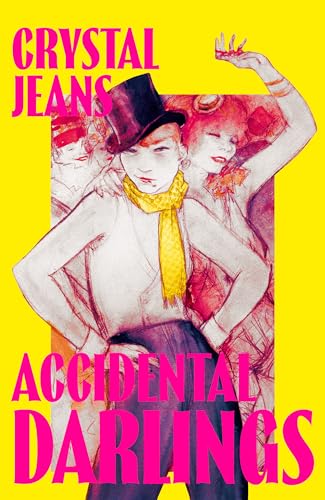Accidental Darlings
When Anastasia’s mother dies, she has to live with her one remaining relative, a forbidding woman she thinks of as just ‘the Aunt’, in a huge crumbling mansion with servants who behave strangely and rooms which contain mysteries. There Anastasia learns that far from dying a hero in the Great War, her father met his end in uncertain circumstances. An emotionally neglected child, she sets out to discover what happened to him.
This is a 1920s murder mystery with a gritty realism most lack. There is subtle dark humour in places, and some laugh-aloud moments too. Great Expectations is often invoked, and the characters draw parallels from Dickens’ book to their own situations. But I found the atmosphere more redolent of Gormenghast. As in Meryvn Peake’s novel, the house becomes a character in its own right, its dilapidation and geography a setting for events, and at times intervening in and determining them. This novel also carries the same sense of a huge building’s brooding presence, of weirdness lurking in shadowy corners, of locked rooms containing hidden secrets, and ultimately of the need to escape its clutches.
This Gormenghast feel is assisted by the characters themselves, who verge on the edge of grotesque when first encountered through the eyes of the child Anastasia. But slowly, like a lens pulling into focus, they resolve into flesh and blood human beings, wrought into those distorted shapes by tragedy, toxic familial relationships and the prejudices of the time. Yet despite that they strive to remain true to themselves with varying degrees of success.
For me, this laudable book does what every true novel should do and casts reflecting mirrors on the human condition – cleverly, the author initially implies that these are distorting mirrors before ultimately showing that they are not.










